Featured Articles
The Top 20 Fire Starters On Earth For Survivalists? | Survival Life
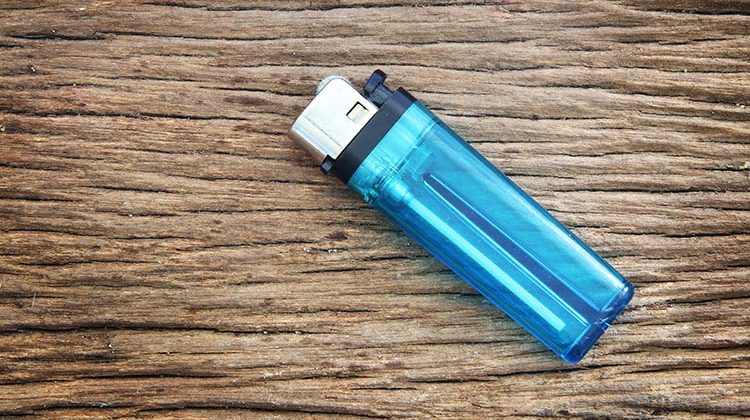
Fire starters are essential for survivalists. There’s nothing more important for a survivalist than knowing how to start a fire. We all have our favorite fire starters, and there’s really no right answer when it comes to which is best. It’s all about preference and what you have available at the time.
20 Fire Starters Survivalists Need To Know About
If you find yourself without traditional fire starters like matches, a lighter or even flint, don’t worry — you still have plenty of options. The infographic in this link details some of the many ways to start a fire. Check it out, and leave your own fire starting ideas in the comments!
Top 10 Ignition Sources:
1. Butane Lighter
Lighters are the easiest, most accessible, quickest way to make fire. Disposable lighters (such as the popular Bic) can be purchased at any gas station or even bought online in bulk.
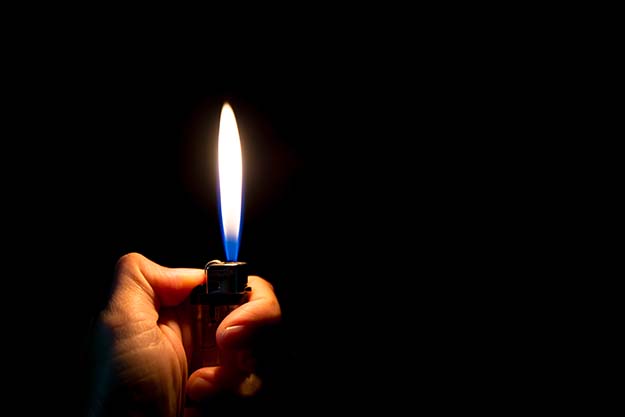
These are a bug out bag essential; don’t leave home without one of these fire starters.
- Durable metal construction
- Wind resistant dual flame technology
- Adjustable flame dial, flexible neck
2. Stormproof Matches
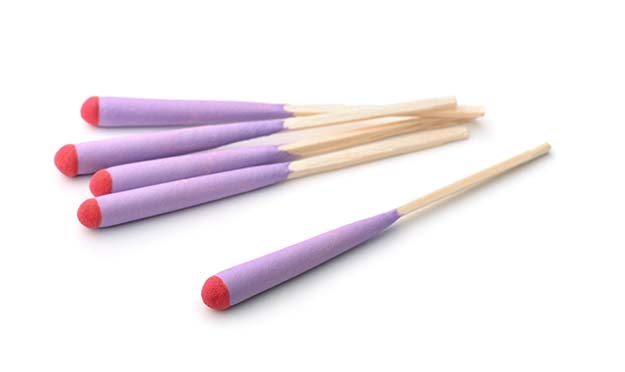
Stormproof matches are a much better bet in a survival situation than traditional matches. These matches can withstand wind, rain and even being submerged in water.
- Stores and protects 15 typhoon matches/ floats in water & keeps matches dry
- Keeps strike pad protected & dry to ensure reliable match ignition/ reusable, Durable & lightweight...
- Provides attachment point for use in pocket, go bag, or On pack/ provides extra pads for long...
3. Magnesium Fire Starter
Magnesium fire starters are a must-have if you think you may find yourself in wet conditions. Highly flammable magnesium shavings are able to ignite when wet — in fact, they burn even hotter!
4. Ferrocerium Rod
Ferro rods are reliable fire starters that will last even longer than a butane lighter or book of matches. Just make sure you’ve got enough tinder to ignite from a spark (we’ll talk about tinder later on in this article.)
5. Electric
Harnessing the power of electricity is a great way to start a fire, provided you have the right tools. A 9V battery and steel wool can be used to start a fire with electricity. So can a cylindrical battery and a gum wrapper, as seen below.
6. Solar
A fresnal lens is a great tool to keep on hand to help you start a fire using sunlight. In the absence of a lens, a clear, reflective surface like a water bottle or even a condom can be used.
7. Chemical
Certain chemical combinations, such as potassium permanganate and glycerin, are combustible and can be used as fire starters. Be careful when handling chemicals.
8. Spark
We’ve already talked about a few fire starting methods that use sparks (ferro rods and electricity.) Flint and steel are other popular methods, and many preppers carry flint and steel in their backpacks and bug out bags. Just make sure you have proper tinder to ignite.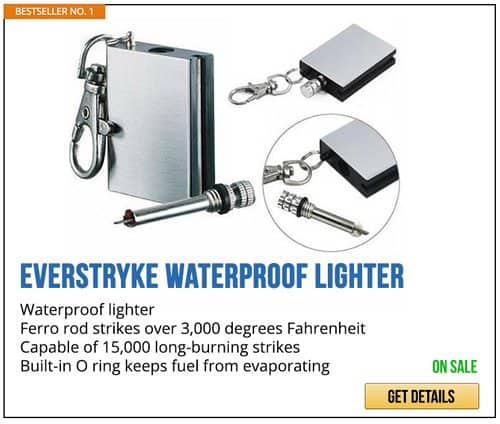
9. Friction
This primitive fire starting method requires a great deal of skill, and takes longer than other methods. Fire bough, fire plow, hand drill and fire saws can all be used to start friction fires.
10. Compression
This is another primitive fire starting method that can be very effective. With enough practice, a fire piston can be a great addition to your bug out gear.
Top 10 Tinders and Starters:
1. Petroleum Jelly Cotton Balls
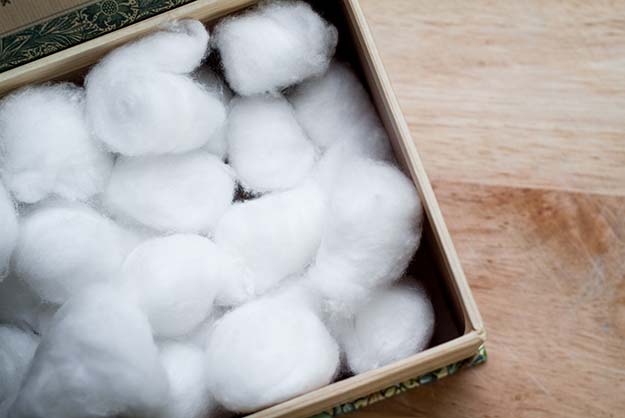
Petroleum jelly cotton balls are cheap, easy to make, compact and last forever. Click here to learn how to make a cotton ball fire starter.
2. Commercial Tinders
You can buy a variety of ready-made tinders at any outdoor supply store, stores like Walmart or online. Weber, Esbit, InstaFire, Live Fire and Tinder-Quick are among the most popular brands.
3. Trick Birthday Candles
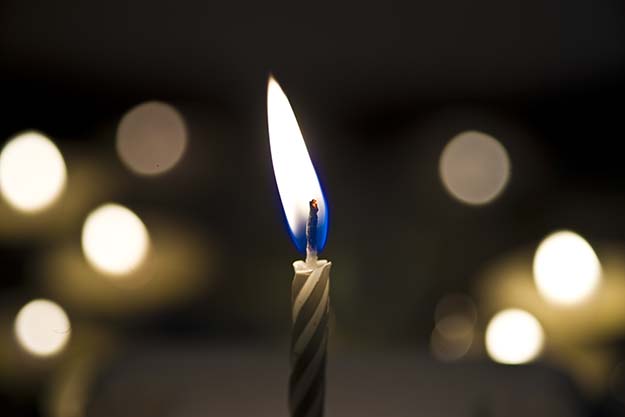
Birthday candles make a great fire starting tinder, as the wax makes it easy to start a fire in wet conditions. As an added bonus, trick candles run less risk of being blown out by the wind.
4. Chemical
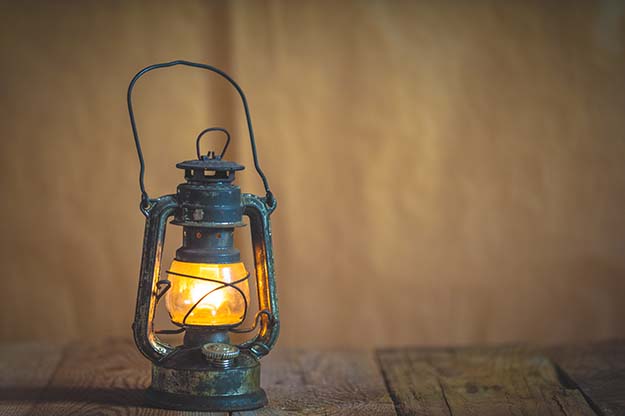
Chemical fire starters such as charcoal starter, kerosene and lighter fluid are easy to come by and work great. In a pinch, household items containing alcohol can be used. Again, take extra care when handling chemicals — they can be dangerous.
5. Wax
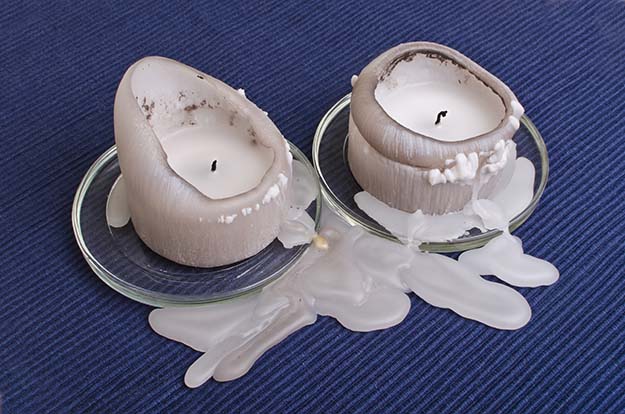
As previously mentioned, wax is a great fire starter because it can work even in wet conditions. Wax can be used to make fire starters out of egg cartons, paper tubes, dryer lint and more.
6. Fatwood
Fatwood is naturally high in resin, making it ideal as a fire starting tinder. It can be bought commercially, or found in the wild if you know where to look.
7. Char Cloth
Char cloth is a fire starting material that is easy to make yourself. All you need is a cotton cloth and an airtight container (such as an Altoids tin.)
8. Foraged Natural Tinders
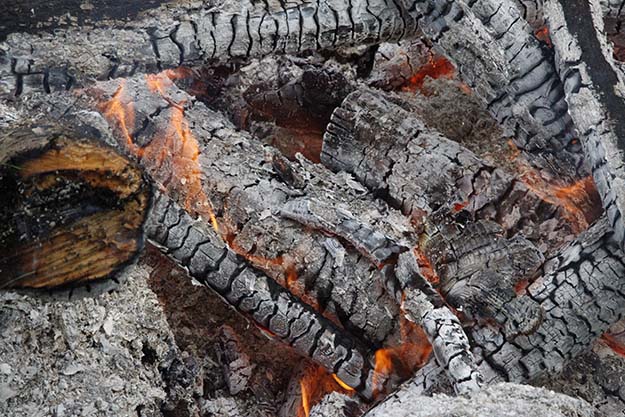
Obviously, natural tinder is abundant in the outdoors. Dried grass and leaves, tree bark and abandoned birds’ nests are among the best natural tinders.
9. Improvised Natural Tinders
If you are unable to find natural tinders that are ready to burn, you can alter other natural materials to make them suitable to use as tinder. For example, wood shavings can make a great tinder.
10. Improvised/Repurposed Tinders
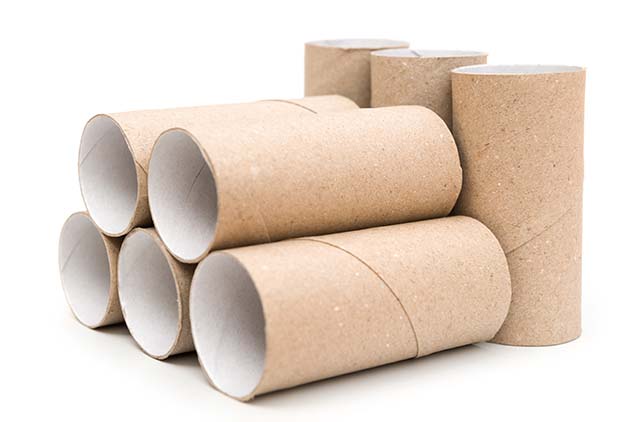
As the saying goes, one man’s trash is another man’s treasure. In a survival situation, you may end up using toilet paper rolls, feminine hygiene products, cotton balls, newspaper, shredded documents, etc. These will be most effective when combined with a flammable substance such as petroleum jelly or alcohol.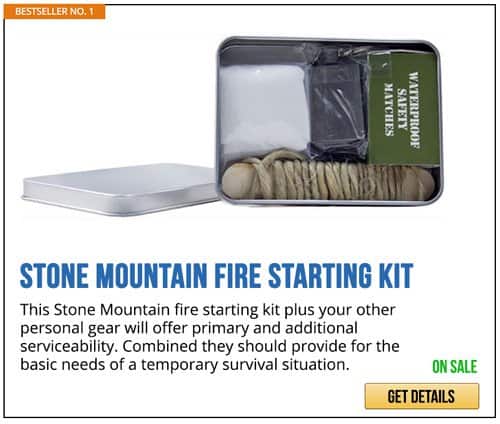
This pocket sized pack gives you 7 different fire starters and fits right in your pocket, pack or glovebox… But hurry, we don’t have many left… Don’t miss out. Grab yours NOW!
Check out this video for more about Tinder and Fire Starters:
https://www.youtube.com/watch?v=FSm4I6jicnI
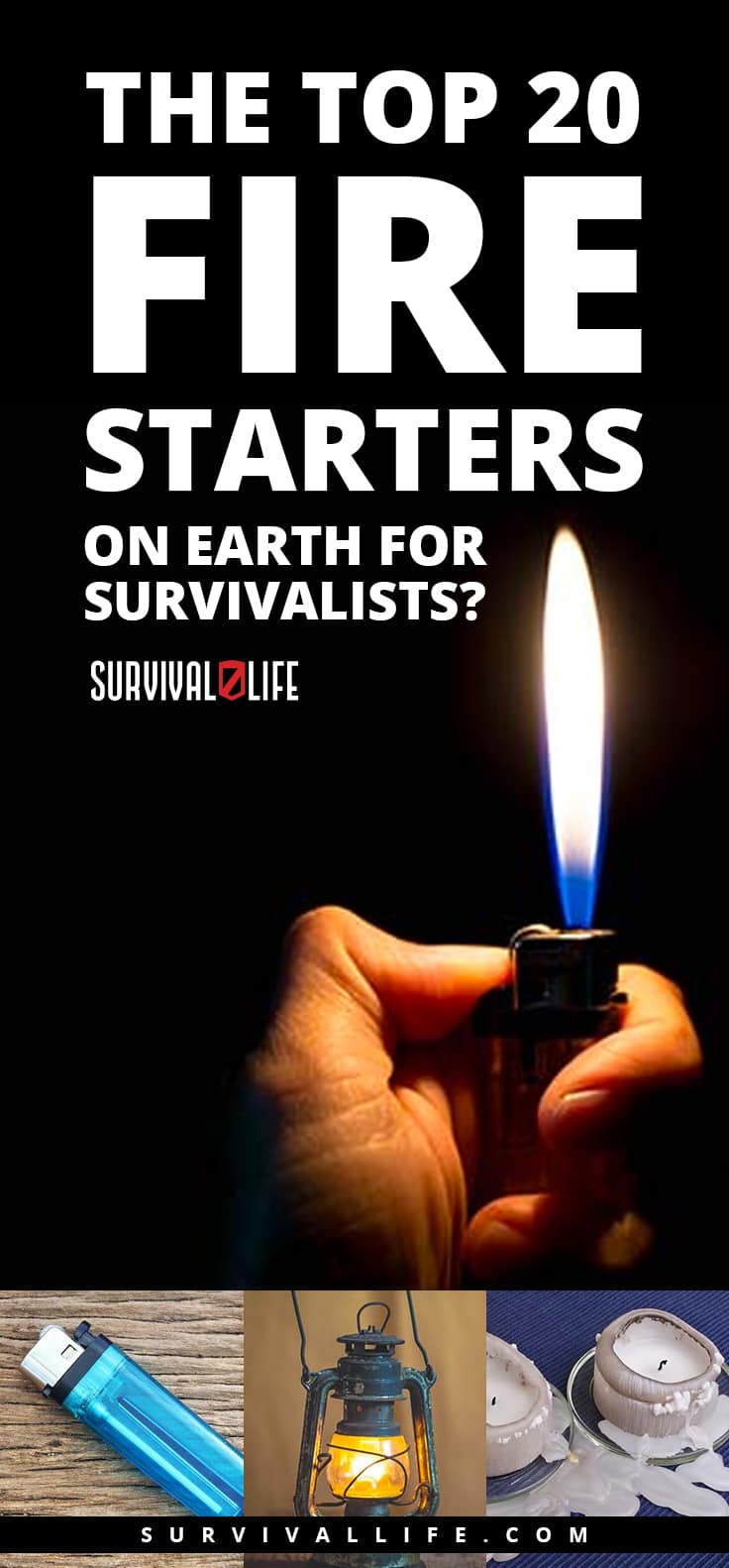
Check out these articles for more about fire starters and survival skills:
- This “AA” Prison Hack Now A Fire Starter For Survivalists
- 25 Obscure Bushcraft Survival Skills
- Personal Survival Skills For The Everyday Joe And Jane
Get more essential survival tools and tactical gear at the Survival Life Store!
Follow us on Facebook, Instagram, Twitte
Editor’s Note: This post was originally published on February , 2017, and has been updated for quality and relevancy.
Last update on 2024-04-20 / Affiliate links / Images from Amazon Product Advertising API
-

 Do It Yourself7 months ago
Do It Yourself7 months agoParacord Projects | 36 Cool Paracord Ideas For Your Paracord Survival Projects
-

 Do It Yourself9 months ago
Do It Yourself9 months agoHow To Make Paracord Survival Bracelets | DIY Survival Prepping
-

 Do It Yourself9 months ago
Do It Yourself9 months ago21 Home Remedies For Toothache Pain Relief
-

 Do It Yourself10 months ago
Do It Yourself10 months agoSurvival DIY: How To Melt Aluminum Cans For Casting
-

 Exports8 months ago
Exports8 months agoAre Switchblades Legal? Knife Laws By State

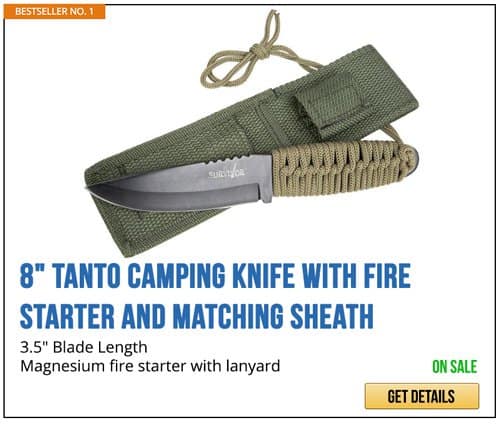
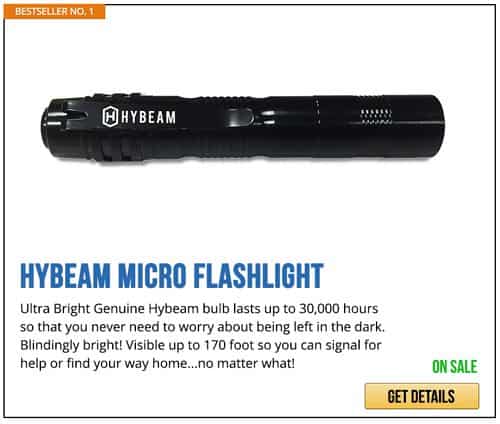
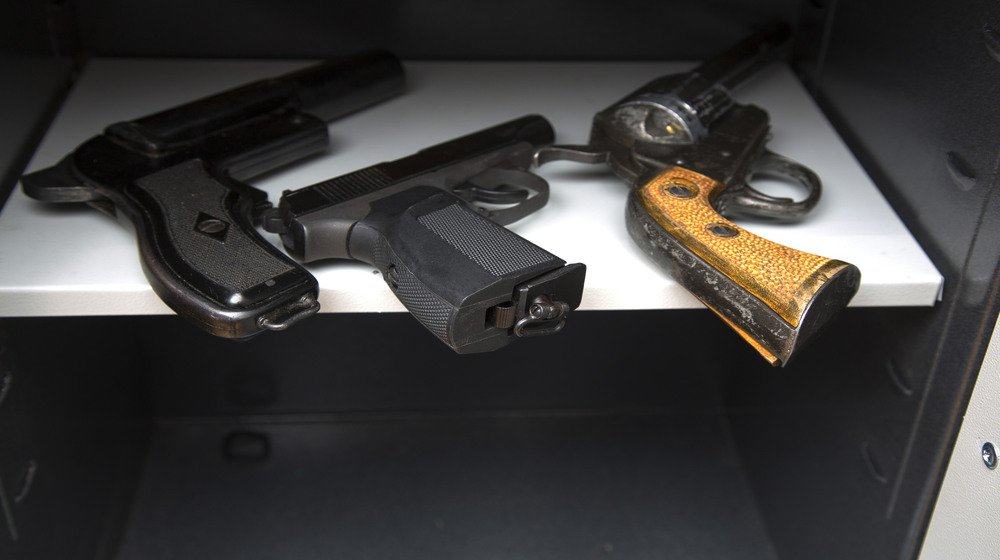

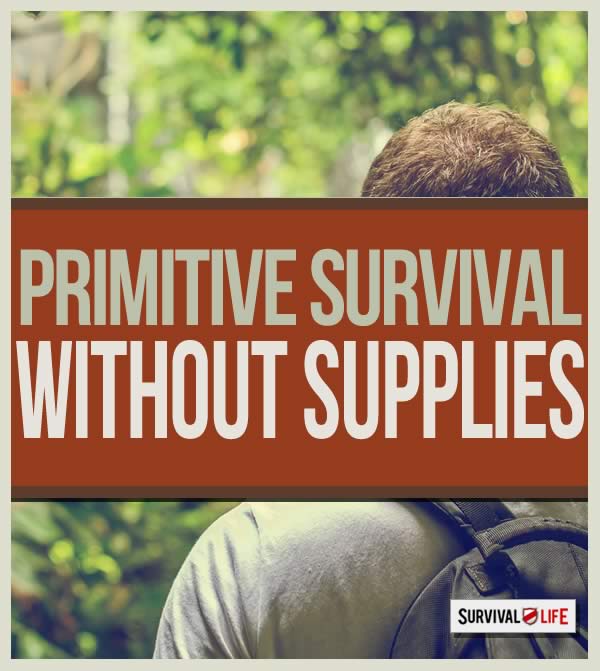

Pingback: DIY Fire Starter: The Cotton Ball | Survival Life
Pingback: DIY Fire Starter: The Cotton Ball - The Right News Network
Pingback: DIY Firestarter: How to Start a Fire With a Battery | Survival Life
Travis Walker
October 12, 2017 at 12:36 AM
Great item list. I always have my fero rod with me for firestarting. Doesn’t take too much space on my bag and it’s easier to start a fire with it. I recommend Ferrocerium Rod 1/2″ x 6″, and this good tinder Wet Fire for fire starting. The tinder I’m using can be lit up even on wet weather conditions.
Pingback: EDC Gear: Professional Brown Leather
Pingback: 7 Simple Survival Techniques That Could Save Your Life
Pingback: EDC Gear With A Professional Brown Leather Touch
Pingback: How To Make Fire On Top Of Deep Snow
Pingback: How to Start a Fire in The Snow - Cooking in Quarantine